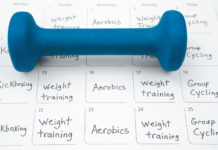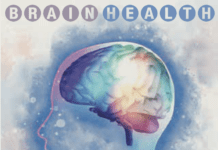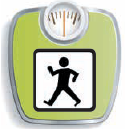Move More, More Often to Maintain Weight Loss
A study provided six months of mediated behavior change and dietary counselling for weight loss to relatively inactive older adults (65 to 86 years) with obesity. Participants were randomly assigned to one of two groups for physical activity. One group participated in a guided walking program with a goal of walking 150 minutes a week. The other group attempted to achieve a step goal by moving frequently during the day.
Both groups lost a significant amount of weight in the first 6 months. Twelve months after the weight loss counselling ended, the group that was asked to achieve a step goal by moving more during the day gained back less weight than the guided walking group.
While physical activity does not necessarily help with weight loss, it has been found to be helpful for weight loss maintenance. Tracking your steps and finding ways to move more throughout your day, such as parking further from your destination, walking to the corner and back when you get the mail, and doing small chores during commercial breaks, are sustainable behavior changes with lasting weight (and health) benefits.
Vitamin B12 Status Linked to Depressive Symptoms


A study conducted in Ireland suggests a connection between vitamin B12 levels and depression. Community-dwelling older adults with lower vitamin B12 levels at the start of the study had a 51 percent higher risk of developing depressive symptoms over a four-year period.
Advanced age, chronic use of acid-reducing mediations, chronic gastritis, and surgery to remove all or part of the stomach or the end of the small intestine can impair absorption of this important vitamin. Vitamin B12 is found only in animal-source foods. Some, but not all, people who adhere to a strict vegan diet may require supplementation.
Too little vitamin B12 can also cause neurological problems, including memory loss, vision problems, loss of coordination, and a feeling of pins and needles in the hands and feet. Vitamin B12 deficiency can also lead to megaloblastic anemia, which causes symptoms that include fatigue, paleness, shortness of breath, dizziness or lightheadedness, and a fast or irregular heartbeat. This condition typically develops slowly over the course of many years.
If you have any of the symptoms discussed above, with or without depressive symptoms, ask your healthcare provider if you should have a blood test for vitamin B12 levels. If you are experiencing depressive symptoms, seek professional help.
Increasing Vegetable Intake Decreases Bone Loss Markers


Vegetables may help protect your bones. An eight-week randomized controlled trial found that increasing vegetable intake decreased markers of bone loss in adults with overweight and obesity. The 102 study participants had low vegetable intake (one serving a day or less) at the start of the study. They were randomized to either continue with their regular diet or receive extra vegetables.
After eight weeks, the vegetable group had lower levels of a blood marker that indicates bone resorption is taking place. (Bone resorption is a process by which our bones release stored calcium into our bloodstream for use by the body, which causes bones to weaken.)
Veggies are high in phytonutrients that might decrease bone resorption, and they provide vitamins and minerals essential to bone building, such as calcium and magnesium. Importantly, intake of vegetables can also decrease acid levels in the body, which reduces the loss of calcium in the urine. More calcium staying in the body means less need for bone resorption.
We already know consumption of vegetables is associated with lower risk of many chronic diseases, including cardiovascular disease, type 2 diabetes, and some cancers. This study suggests we may be able to add bone health to that list. Aim for two-and-a-half cups of vegetables (and two cups of fruit) a day.

























